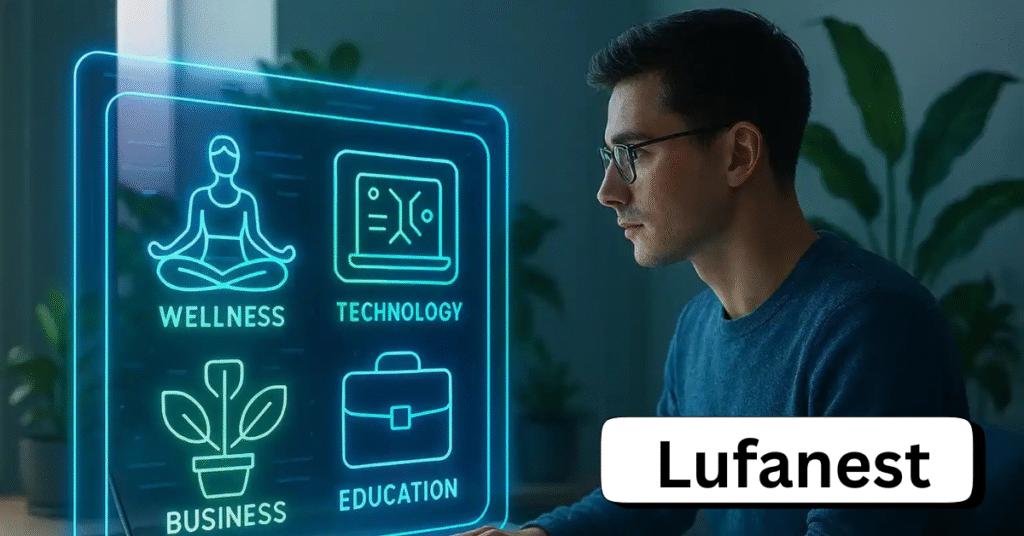Lufanest is a medication gaining attention across the United States for its effectiveness in treating various health conditions. With thousands of people searching for safe and dependable treatment options, Lufanest stands out as a trusted name in modern medicine. This article will explain what Lufanest is, how it works, who can take it, and what users need to know about side effects, storage, and more.
What Is Lufanest and What Does It Do?
Lufanest is a prescription medication commonly used to manage and treat a variety of chronic and acute conditions. Though it may be prescribed for different reasons, Lufanest is best known for its ability to reduce inflammation, regulate immune responses, and provide targeted relief from persistent symptoms in patients who haven’t responded well to other treatments. Doctors in the United States often prescribe Lufanest when other drugs have failed or are no longer effective. It works by interacting with specific receptors in the body to control overactive immune system responses or reduce symptoms tied to long-term diseases. Unlike some over-the-counter drugs that only mask symptoms, Lufanest addresses the root cause of the condition, offering longer-lasting relief and improved quality of life.
Who Can Take Lufanest?
Lufanest is intended for individuals who have received a proper diagnosis from a licensed healthcare provider. While many adults use Lufanest to help manage ongoing medical issues, not everyone is a suitable candidate. It’s important that a doctor reviews your full medical history, current medications, and overall health before prescribing Lufanest. This ensures that the drug is safe and effective for your specific condition. Because it can interact with other medications or trigger reactions in some people, Lufanest should never be taken without medical supervision.
Is Lufanest Safe for Kids?
Lufanest is not typically recommended for children unless explicitly prescribed by a pediatrician or specialist. The safety and effectiveness of Lufanest in kids under a certain age may not be fully studied, and dosing can be complex. If a doctor believes that a child may benefit from Lufanest, they will usually start with a very low dose and monitor closely for side effects. Parents should never give this medication to children without medical approval.

Can Older People Use Lufanest?
Yes, older adults can take Lufanest, but they may require closer monitoring. As people age, their bodies process drugs differently. Seniors may have reduced kidney or liver function, which affects how long Lufanest stays in the system. They may also be more likely to take other medications that could interact with Lufanest. As a result, older individuals should follow their doctor’s instructions closely and report any unusual side effects immediately.
How Long Do You Take It?
The length of time someone takes Lufanest varies depending on the condition being treated. Some patients may only need Lufanest for a few weeks, while others may be on it for several months or even longer. It’s important not to stop taking the medication suddenly unless directed by your doctor. In many cases, Lufanest must be tapered off slowly to prevent withdrawal symptoms or a return of the condition. Regular check-ins with your healthcare provider help ensure the treatment is working as expected and can be adjusted as needed.
How to Take Lufanest the Right Way
Taking Lufanest correctly is key to getting the best results. It is usually taken by mouth in the form of a tablet or capsule. Your doctor will tell you how many times per day you should take it and whether it should be taken with food. Always follow your doctor’s exact instructions and never change your dose on your own. If you miss a dose, take it as soon as you remember—unless it’s close to your next scheduled dose. In that case, just skip the missed one and continue as usual. Don’t double up doses to make up for a missed one. To make things easier, try to take Lufanest at the same time every day. Setting an alarm on your phone or writing it down in a medicine journal can help you remember. Drinking a full glass of water with each dose may also help prevent stomach discomfort, a common complaint among new users. If your doctor tells you to take it with food, make sure to have a small meal or snack ready.
What Are the Side Effects of Lufanest?
Like all medications, Lufanest can cause side effects. The most common ones include nausea, headache, dizziness, fatigue, and upset stomach. These usually go away on their own after a few days as your body adjusts to the medicine. However, some people may experience more serious effects like changes in mood, difficulty sleeping, or irregular heartbeat. If you notice any symptoms that worry you, call your doctor right away. Long-term use of Lufanest may affect liver function or other organs, so your doctor may recommend routine blood tests to make sure everything is working properly. Also, make sure to tell your doctor if you’re pregnant, trying to become pregnant, or breastfeeding, as Lufanest may not be safe during pregnancy or nursing.
Signs It’s Not Working
Sometimes Lufanest may not work as expected. If you notice that your symptoms are not improving after a few weeks, or if they are getting worse, this could mean the medication is not right for you. Other signs that Lufanest may not be working include increased fatigue, new symptoms appearing, or a return of the condition you were originally treating. Never increase your dose without talking to your doctor, even if you think the medicine isn’t doing its job. Your doctor might switch you to a different medication or combine Lufanest with another treatment to get better results.

Allergic Reactions to Watch For
Though rare, allergic reactions to Lufanest can occur. Watch out for symptoms like rash, itching, swelling (especially of the face, tongue, or throat), severe dizziness, or trouble breathing. These symptoms require emergency medical attention. If you’ve ever had an allergic reaction to a medication in the past, make sure your doctor knows before starting Lufanest.
Can Lufanest Be Taken with Other Medicine?
In many cases, Lufanest can be taken with other medications, but it depends on the specific drugs involved. Some medicines may interact with Lufanest and either reduce its effectiveness or increase the risk of side effects. Always tell your doctor about all the medications, supplements, and vitamins you’re taking before starting Lufanest. This includes over-the-counter pain relievers, allergy medications, and even herbal supplements. Your doctor may need to adjust the dose or schedule of your other medications to avoid problems.
Tips for Storing Lufanest at Home
Storing Lufanest the right way keeps it safe and effective. Always keep it in its original container with the lid tightly closed. Store it in a cool, dry place away from sunlight, moisture, and heat. Do not keep it in the bathroom or near the kitchen sink, where moisture levels are higher. Keep it out of reach of children and pets. If your medicine expires or is no longer needed, don’t throw it in the trash or flush it down the toilet. Ask your pharmacist about safe drug disposal programs in your area.
Common Questions About Lufanest
People have many questions about Lufanest, and that’s perfectly normal. Some wonder if it’s okay to take it long-term. Others ask if it’s safe with alcohol or if it will make them feel sleepy. These are all important concerns. The truth is, how Lufanest affects you can vary based on your personal health, what other medicines you take, and how your body responds to the drug. Always talk to your doctor or pharmacist if you’re unsure about something. Don’t rely only on internet forums or friends’ advice. What works for one person may not work for another. Also, follow-up appointments are a good chance to ask your doctor questions and get the latest updates about your treatment.
The Bottom Line
Lufanest is a powerful and effective medication that has helped many people across the United States find relief from tough medical conditions. But like any drug, it’s not a one-size-fits-all solution. You must work closely with your doctor to ensure it’s the right choice for you. From how to take it properly, to watching for side effects, to knowing when it’s not working, every part of the process matters. By staying informed and asking questions, you can get the most out of your treatment with Lufanest. Remember, taking care of your health is a team effort, and Lufanest may just be one part of the solution. With the right support, the right habits, and the right medication, better days are possible—even if the journey takes time.



